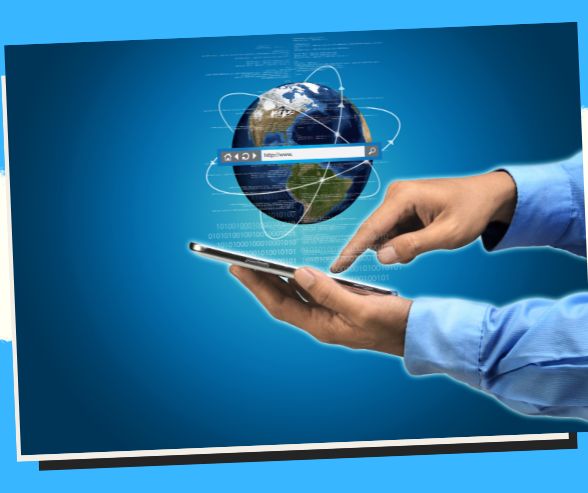
The ROI of CRM for B2B and B2C: Why You Need It
CRM can help you manage your customer relationships in both B2B and B2C. However, there are some key differences in how you should use CRM for each type of customer.
CRM in B2B vs. B2C: Key Differences and Strategies 


Customer Relationship Management (CRM) systems have become the cornerstone of modern business operations, enabling companies to manage interactions, enhance customer experiences, and drive growth. However, the approach to CRM can vary significantly between Business-to-Business (B2B) and Business-to-Consumer (B2C) contexts due to distinct customer dynamics, sales cycles, and relationship nuances. This article will explore the key differences and strategies in implementing CRM for B2B and B2C scenarios.
Understanding B2B and B2C CRM
B2B CRM:
B2B interactions involve companies selling products or services to other businesses. These relationships often entail complex sales processes, longer decision-making cycles, and interactions with multiple stakeholders within the purchasing organization.
B2C CRM:
B2C interactions involve businesses selling products or services directly to individual consumers. These interactions generally focus on shorter sales cycles, mass marketing efforts, and engaging with many individual customers.
 Key Differences in B2B and B2C CRM
Key Differences in B2B and B2C CRM 
1. Customer Relationship Complexity:
B2B relationships often involve multiple decision-makers and influencers within the buying organization. CRM in the B2B context requires understanding these dynamics and building relationships across various levels, from executives to end-users. In contrast, B2C CRM deals with individual consumers, focusing on understanding their preferences and behavior.
2. Sales Cycle Length:
B2B sales cycles are typically longer due to the intricate decision-making process and the need for consensus among stakeholders. B2C sales cycles are generally shorter, emphasizing creating immediate purchase opportunities.
3. Volume vs. Value:
B2B transactions tend to have higher transaction values but lower transaction volumes. B2C transactions, on the other hand, often involve lower individual transaction values but much higher volumes.
4. Personalization Complexity:
B2B personalization often involves tailoring solutions to meet the specific needs of each business client. B2C personalization focuses on understanding consumer preferences to provide personalized recommendations and offers.
5. Communication Channels:
B2B interactions often rely on direct communication channels such as emails, phone calls, and in-person meetings. B2C interactions utilize digital channels, including social media, mobile apps, and online advertising.
Strategies for Effective B2B CRM
1. Account-Centric Approach:
In B2B CRM, focus on building relationships with key accounts. Understand the organizational structure of your B2B clients, identify decision-makers, influencers, and users, and tailor your interactions accordingly.
2. Customized Solutions:
B2B clients require tailored solutions that address their specific pain points and objectives. Use CRM data to create personalized proposals and recommendations that align with the client’s needs.
3. Long-Term Relationship Building:
Recognize that B2B relationships are long-term investments. Nurture relationships through regular communication, providing value through thought leadership content, and being responsive to client inquiries.
4. Collaboration and Coordination:
B2B CRM often involves collaboration among different teams within your organization. Ensure seamless communication between sales, marketing, and customer service to provide a unified customer experience.
Strategies for Effective B2C CRM
1. Segmentation and Personalization:
In B2C CRM, segment your customer base based on demographics, behavior, and preferences. Leverage this data to deliver targeted marketing messages, personalized product recommendations, and exclusive offers.
2. Omnichannel Engagement:
Engage customers across multiple channels, such as social media, email, mobile apps, and brick-and-mortar stores. Maintain a consistent brand message and experience regardless of the channel.
3. Timely and Relevant Communication:
B2C customers expect timely responses and relevant information. Use automation to send order confirmations, shipping updates, and personalized recommendations based on recent purchases.
4. Loyalty Programs:
Implement loyalty programs that reward frequent purchases, referrals, and engagement. Use CRM data to track customer points, offer rewards, and encourage repeat business.
Embracing Technology Advancements
Both B2B and B2C CRMs benefit from technological advancements that can further enhance customer relationships.
AI and Predictive Analytics:
Leverage AI and predictive analytics to anticipate customer needs and behavior. In B2B, this can help identify potential upsell or cross-sell opportunities. In B2C, it can enhance personalized recommendations.
Mobile CRM:
Mobile CRM apps enable sales representatives and customer service agents to access information on the go, improving responsiveness and allowing for real-time customer engagement.
Conclusion
While CRM is the foundation for managing customer relationships in both B2B and B2C environments, the strategies and approaches must consider each context’s unique characteristics. Understanding the nuances of B2B and B2C dynamics is essential for crafting effective CRM strategies that build lasting relationships, drive sales growth, and enhance customer satisfaction. By tailoring CRM strategies to these distinct contexts, businesses can unlock the full potential of their customer relationships and achieve long-term success.
Related Queries
CRM in B2B vs. B2C
CRM
B2B
B2C
Sales cycle
Decision-making process
Customer needs
ROI
Data
The future of CRM
Don’t miss out
Save/Share this story with QR CODE
Disclaimer
This article is for informational purposes only and does not constitute endorsement of any specific technologies or methodologies and financial advice or endorsement of any specific products or services.
 Need to get in touch?
Need to get in touch?

We appreciate your reading. 
1.) 

Your DONATION will be used to fund and maintain NEXTGENDAY.com
Subscribers in the Philippines can make donations to mobile number 0917 906 3081, thru GCash.
3.) 
4.) 
AFFILIATE PARTNERS

World Class Nutritional Supplements - Buy Highest Quality Products, Purest Most Healthy Ingredients, Direct to your Door! Up to 90% OFF.
Join LiveGood Today - A company created to satisfy the world's most demanding leaders and entrepreneurs, with the best compensation plan today.

 Business, Finance & Technology
Business, Finance & Technology

 Business Technology, Finance Technology & Information Technology
Business Technology, Finance Technology & Information Technology













